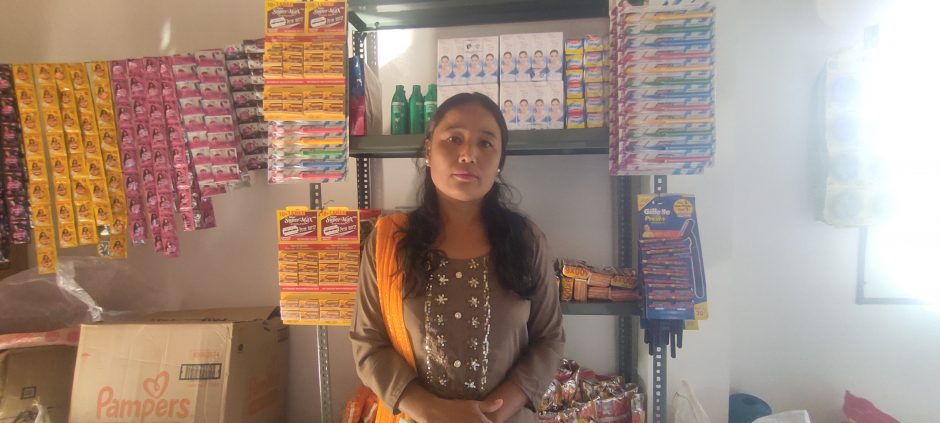Workers from the Sree Dwarika Tea Estate in West Bengal, India, can now buy daily essentials at an affordable rate from a Fair Price Store within the estate.
Set up with support from Fairtrade’s Network of Asia and Pacific Producers, a German commercial partner, and Fairtrade Germany, the store forms part of a €250,000 investment for several projects in Assam and West Bengal by Chamong Tee Exports Pvt Ltd.
Indranil Ghosh, director of pperations, Chamong Tee Exports Pvt, said: “It has been our dream for the past 10 years to set up a co-operative where workers can be supplied with food essentials at a dealer’s price.”
The shop was launched on 27 October 2021 and is currently open for three days a week. The store is run as a members’ co-op and is open for both members and non-members. Members have the advantage of being able to buy products on credit until they receive their monthly wages.

Ranju Tamang, chair of Fair Price shop, said: “We have started the shop with basic essentials and will gradually scale up the varieties of items to bring in. The shop has made it very convenient for workers to buy their daily essentials at an affordable rate. We had only two choices earlier, either to buy at a higher rate from the local shops, or to spend at least an hour or more to travel all the way to the main town.”
Ravi Jakhmol, who had joined Chamong Tee Estates eight years ago and has been managing Sree Dwarika Tea Estate for the past four years, said: “We have 110 members who have paid a one-time membership fee of 100 INR. The products are sold to the members at a 1% lower cost as compared to others. The margins may vary for different products from 1 to 5 % and sometimes even 10%.
“It is important for the shop to generate steady revenue for bringing in the next batch of monthly stock. After we run the shop for a month, we can analyse the figures and estimate of how much a worker is able to save from their monthly expenses. Suppose we get the goods at a wholesale price from Siliguri (the main city) an approximately 5 to 7% lower cost, and we sell it to the workers by keeping a margin of 2%, the final cost still works out cheaper by 3 to 4% for the workers compared with buying it locally or from Darjeeling (the main town).”
The project forms part of the ‘Fairtrade North, East India Tea Strategy’ launched in 2017 to establish strong, resilient and secure tea planting communities in North East India.

